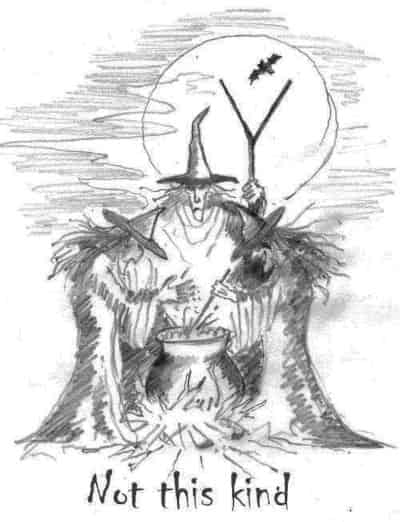That and which – No 3 in a series of articles about translating into English
Double, double toil and trouble;
Fire which burns or caldron that bubbles?
(Sorry, Bill.)
Out of that and which, a lot of people seem to have trouble deciding which to use. It can seem confusing, but it shouldn’t be, there is a clear rule.
That doesn’t mean that there can be no ambiguity, there can. A good writer can use this ambiguity to sow uncertainty, but that is a secondary topic. Let’s run through the primary one.
‘Whichʼ is often used when it could better be ʻthatʼ. Here is an example:
Please re-write the draft report which you sent yesterday.
Sounds OK? Yeeeees…, but it can be clearer.
I know a word that is hard to define, which means I rarely use it.
This is better. Here, ‘that’ helps define the word we are talking about, distinguishing it from other kinds of words, which are easy to define. Without this ‘that’ clause, we are saying nothing of interest at all, and the rest of the sentence makes no sense. It’s essential to the word we are talking about.
In the sentence above, the word is already identified, the first part of the sentence can stand on its own. So ‘which means I rarely use it’ is a non-essential clause containing additional information, but not information that woulld make nonsense of the whole thing or take away the point we want to make if removed.
Essential clauses do not have commas introducing or surrounding them, whereas non-essential clauses are often introduced or surrounded by commas.
The ʻwhichʼ here refers to the fact that this word is hard to define, or to the fact that I know this, it could be either. But the part of the sentence before the comma could stand alone and make good sense, whereas the ‘which’ clause is not essential.
Another one: I have an apple that is sweet, which is good. Again, ‘that’ tells us the difference between the kind of apple we are talking about and other kinds of apple, sour apples: distinguishing the sweet ones is essential to what we want to say. ‘Which’ tells us that either the fact that I have it, or that it is sweet, is good – nice to know, but not essential to the main point.
‘That’ introduces what’s called an essential clause (or a restrictive or defining clause). Essential clauses add information that is vital to the point of the sentence.
‘Which’, however, introduces a non-essential clause (or a non-restrictive or non-defining clause), which adds information.
So what about ‘that which’? ‘That which we are discussing is often misunderstood.’ ‘Which we are discussing’ is an essential clause, isn’t it? So it ought to be ‘That that we are discussing…’. This would be correct according to the rule, but so ungainly that no-one would say it, so break the rule here and use which instead of the second that. (Just imagine the opposite: ‘Which that we are discussing…’ – possible? No. Because the first ‘that’ is not used in the same way, indeed the word ‘that’ has several uses).
A word of caution. You will often find ‘which’ used to introduce essential clauses; in informal or colloquial usage, the words are often used interchangeably though this can cause confusion, so you don’t have to follow this rule but if you do, you won’t have any trouble. The more formal the level of language, the more important it is to preserve the distinction between these two relative pronouns.
Examples:
I saw trucks containing ballot boxes without seals that made me suspicious – the seals might have made me suspicious if they had been different, but they weren’t so I wasn’t.
I saw trucks containing ballot boxes without seals which made me suspicious – the fact that I saw the trucks made me suspicious, or maybe it was these unsealed boxes that made me suspicious; in any case it wasn’t the seals themselves, because there weren’t any.
I saw trucks containing ballot boxes without seals, which made me suspicious ‒ the comma clears up any confusion there may have been and the fact that I saw all this is what made me suspicious.
Or:
The General Manager shall assure the implementation of the provisions of this law that relate to the public broadcasting service. (He will assure only those provisions of this law that happen to relate to the public broadcasting service, the other ones are someone else’s job.)
The General Manager shall assure the implementation of the provisions of this law which relate to the public broadcasting service. (He will assure all the provisions, every single one of them, but, just for your info in case you didnt know it, all provisions of this law relate to the public broadcasting service). Clearer if you put a comma after ʻlawʼ.
However,
When the hurlyburly’s done,
When the battle’s lost and won,
you can often leave it out completely:
Please re-write the draft report you sent yesterday.
